drugs
Latest

Reddit bans communities trading firearms and drugs
Reddit's bid to clean up its communities now includes what those communities trade. The social site has updated its policies to ban the trade of firearms, explosives, drugs (including alcohol and tobacco), services with "physical sexual contact," stolen goods, personal info and counterfeits. Accordingly, Reddit has shut down numerous subreddits that either directly traded in these goods or were clearly meant to enable those exchanges, including r/gunsforsale, r/stealing (yes, it existed) and r/darknetmarkets.
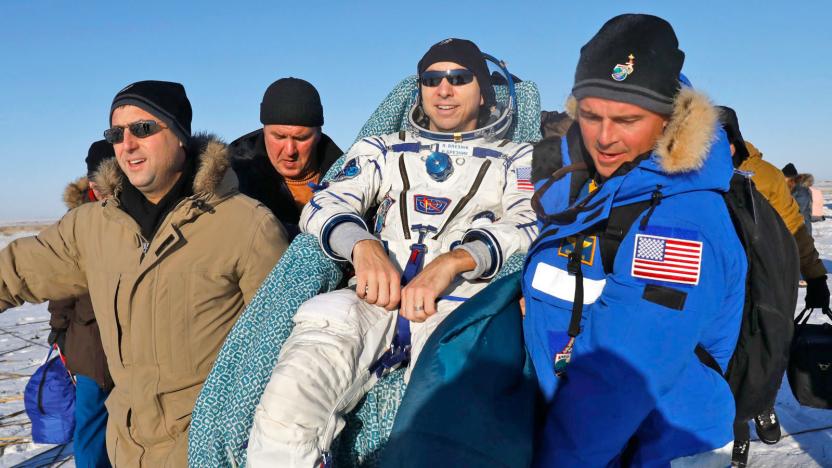
NASA tests treatment that could slow astronauts’ muscle loss
Even though astronauts exercise everyday while they're aboard the International Space Station (ISS), they still experience a fairly significant loss of muscle mass. So much so that they require physiotherapy once they return to Earth. However, researchers with the Houston Methodist Research Institute and the Novartis Institute for Biomedical Research are testing a device that can continuously administer a medicine that may help prevent muscle deterioration, Seeker reports. The team sent 40 mice to the ISS in December, some with devices that deliver the drug and some with devices that just deliver an inactive solution. Half returned to Earth in January and the other half will do so this month.
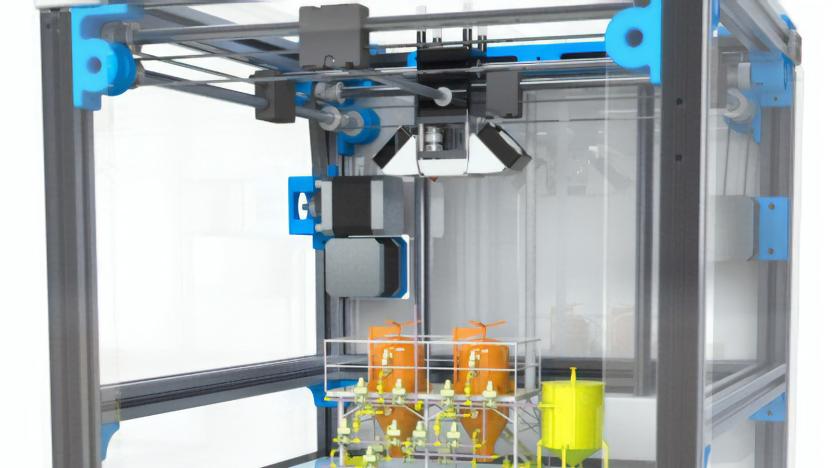
3D printers could let you produce your own drugs
You might imagine that drug production only happens at gigantic pharma corporations with millions of dollars worth of equipment. However, researchers at the University of Glasgow have unveiled a new process of building "reactionware," or small reactors that can produce drugs, using a $2,000 off-the-shelf 3D printer, Science reports. The new process makes it possible for anyone to fabricate drugs, allowing doctors in developing nations to quickly produce medicines to curtail outbreaks, or even let you produce your own ibuprofen at home.
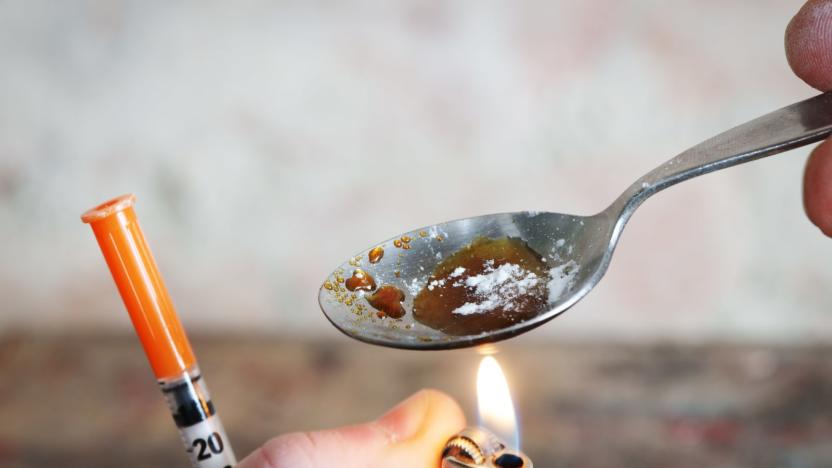
Google bans sketchy UK ads for profiteering addiction helplines
Google's not having the best start to the year, as it's already been called out, yet again, for unscrupulous advertising practices. An investigation by The Sunday Times shed light on a significant money-making machine, which played out through Google ads, targeting people seeking help for substance abuse issues. Someone entering relevant search terms might see an ad for a free advice helpline. These services might subsequently provide details of formal treatment options at private clinics. A caller wasn't to know, however, that successful referrals were netting these companies significant commission fees. As a result of the investigation, Google has now banned these types of ads from appearing in search results in the UK.

Researchers test method to print mass-market medications
University of Michigan researchers have developed a technique to print medications onto a disposable strip or patch. In tests, these were just as effective as traditionally-produced medications at destroying cultured cancer cells. What's more, the technique prints multiple medications at once, which could be much more convenient for patients who take many prescriptions daily.

Experimental drug could restore memories after brain injury
An experimental drug could have major implications for patients suffering from memory disabilities caused by traumatic brain injury (TBI). In tests, the drug known as ISRIB completely restored the ability to learn and remember in brain-injured mice -- even on those that were treated up to a month after injury. The findings are contrary to most research on brain trauma, which claims treatments must be carried out urgently to preserve normal function.

Silk Road founder loses appeal and will serve life in prison
The Silk Road network's creator Ross Ulbricht vowed to fight his lifetime prison sentence when it was handed down two years ago. But today, the US Second Circuit officially denied his appeal, sending him away for a long, long time.

The eerie stop-motion game that's 'better than sex with Jesus'
When I first talked with Anders Gustafsson and Erik Zaring in 2012, they promised their creepy, psychedelic, stop-motion game, The Dream Machine, was going to be "better than sex with Jesus." They had a lot of work ahead of them -- they were building the game by hand, with physical materials, and the stop-motion process was inherently time-consuming. Plus, they had to wrangle episodic installments of an intimate yet sprawling story inspired by LSD trips and theories of alternate realities. Five years later, as the sixth and final installment of The Dream Machine finally lands on Steam, I ask Gustafsson and Zaring if they think their game delivers on its sacrilegious promise.

This is what AI sees and hears when it watches 'The Joy of Painting'
Computers don't dream of electric sheep, they imagine the dulcet tones of legendary public access painter, Bob Ross. Bay Area artist and engineer Alexander Reben has produced an incredible feat of machine learning in honor of the late Ross, creating a mashup video that applies Deep Dream-like algorithms to both the video and audio tracks. The result is an utterly surreal experience that will leave you pinching yourself.
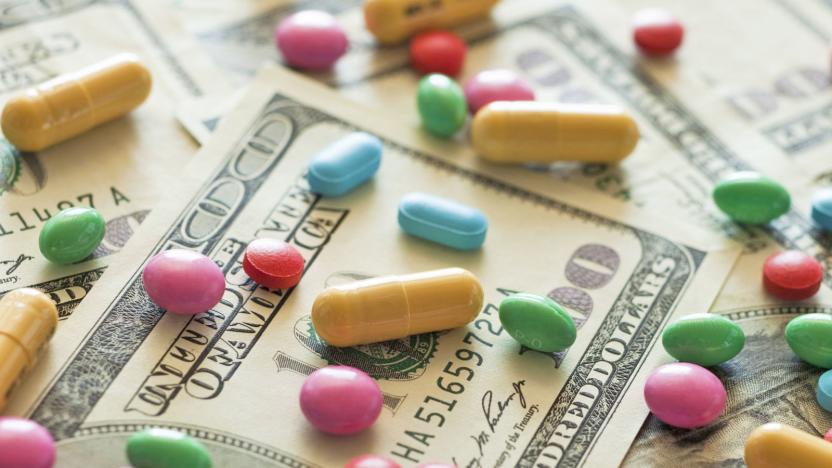
Old drug gets an absurd price hike to $89,000 per year
Martin Shkreli doesn't have a monopoly on jacking up drug prices. Marathon Pharmaceuticals has received FDA approval for an old drug used to treat Duchenne muscular dystrophy, deflazacort, and in the process has raised the price to ridiculously high levels. You could previously import the generic medicine for about $1,200 per year, but it now costs a staggering $89,000 per year -- "just" $54,000 with discounts and rebates. And since deflazacort (now rebranded as Emflaza) is classified as an orphan drug used to treat a rare disease, Marathon will both have a 7-year exclusive on US sales and a voucher to fast-track a future approval.

Nevada site bug leaks medical marijuana applicant data
Nevada residents applying to sell medical marijuana got just got an unpleasant surprise. The state's Department of Health and Human Services has confirmed that a vulnerability in a website portal leaked the data of more than 11,700 applicants, including their driver's license and social security numbers. Officials have taken down the relevant site until they fix the flaw, but there's a concern that fraudsters might have seen the info and used it for malicious purposes.

Dutch scientists' artificial leaf can create medicine anywhere
Wouldn't it be great to have the ability to concoct medicine anywhere the sun shines, even if it's on another planet? A team of Dutch scientists from Eindhoven University of Technology have developed an artificial leaf-like device that could make that happen. The researchers, inspired by plants that can make their own food through photosynthesis, used materials that can match leaves' capability to capture and store sunlight for later use. These materials are called luminescent solar concentrators (LSCs), which have special light-sensitive molecules that can capture huge amounts of incoming light.
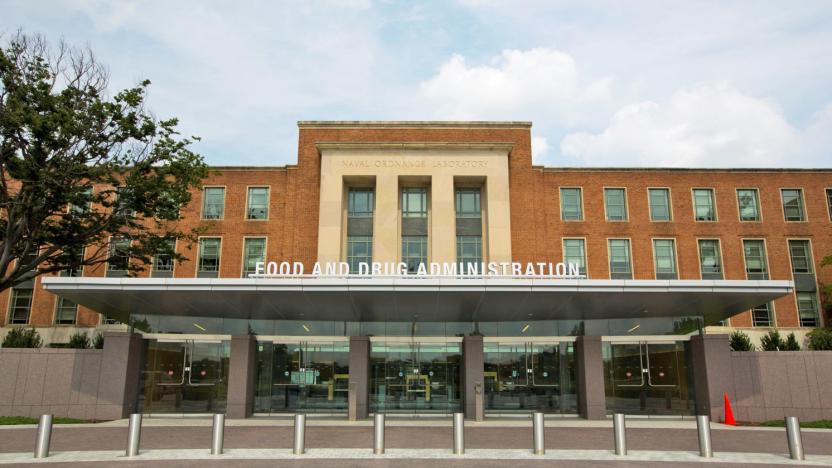
FDA approves new trials using MDMA to help treat PTSD
MDMA, the pure form of Ecstasy, is usually only mentioned when partygoers get busted for holding the Schedule 1 restricted drug. But medical researchers have been quietly testing its potential medical applications, like treating terminally ill patients and assisting patient therapy for PTSD. The results from the latter have been promising enough for the FDA to commission Phase 3 trials, which is the last step before MDMA's possible approval as a prescription drug.

Atomic-sized MRI uses quantum bits to help discover new drugs
Researchers have used quantum computing tech to miniaturize a magnetic resonance imaging (MRI) scanner, making it small enough to pick up the structure of single biomolecules without damaging them or losing information in the process. This could make it a key tool for drug discovery and other biotech research.

Nano-sized metal fish deliver targeted drugs to your body
Doctors have long dreamed of delivering drugs to specific parts of your body, and they may soon have a clever way to do it: fish. UC San Diego researchers have developed nanoscale metallic fish (they're just 800 nanometers long) that could carry medicine into the deeper reaches of your bloodstream. Each critter has a gold head and tailfin, as well as a nickel body joined by silver hinges. You only have to subject them to an oscillating magnetic field to make them swim -- there's no need for propellers or a passive (read: slow) delivery system. That, in turn, could make the drug carriers smaller even as they move quickly.

Scientists find a way to make cells respond to stimuli
Through the use of synthetic biology researchers have been able to program cells to perform unique functions, like produce drugs in response to disease markers. In order to create more complex cellular circuits, several MIT engineers have now found a way to program cells to respond to a series of events.

Microsoft victory protects overseas data from US warrants
For the past three years, Microsoft has been locked in a legal battle with the New York district court over a deceptively simple question: does a US Judge have the right to issue a warrant for data stored overseas? According to a new ruling from the US Court of Appeals Second Circuit, the answer, is no.

ISS experiment will investigate how pills dissolve in space
Space is weird, and it's well known that floating around up there takes its toll on our fragile human bodies. If we're to ever conquer the final frontier, we'll need to do more than eat our greens to keep healthy in alien conditions. A new experiment, soon to be carried out on the International Space Station (ISS), will look at how pills dissolve in microgravity, because astronauts get sick too. It's hoped that results of the "Hard to Wet Surfaces" study, devised by pharmaceutical company Eli Lilly, could lead to the development of better drug formulations that are more effective in space, and possibly on Earth.

Researchers develop a drug-sniffing car that can pinpoint your stash
A chemistry professor in Texas has equipped an electric Ford sedan with a unique (and possibly unconstitutional) aftermarket upgrade: a drug-sniffing device that can recognize small amounts of illegal substances in the air and locate the source with surprising accuracy.

LSD makes you think like a baby
Researchers at Imperial College London believe that they know what effect LSD has on the human brain. After pumping test subjects full of the stuff and shoving them in an MRI, the team learned that the drug makes our brains behave similarly to that of a baby. In order to understand this, imagine that your mind is the single floor of an office, with cubicles running as far as the eye can see. Each cubicle is responsible for different jobs, such as memory, balance and hearing, only talking to each other on the annual company retreat. LSD is like a disgruntled former employee, temporarily smashing down the plyboard dividers and forcing everyone to collaborate.












